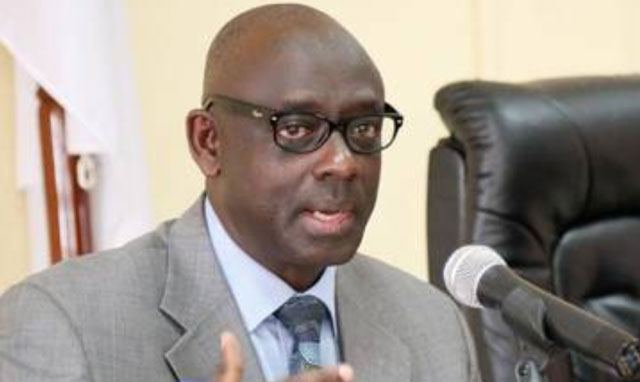
Kigali, Rwanda | KELLY RWAMAPERA | The Supreme Court in Kigali will on Wednesday April 24, 2019 rule on a petition submitted by a Kigali lawyer against five provisions in the country’s new penal code amended after over 40 years in August 2018.
Richard Mugisha filed a constitutional petition to the Supreme Court December last year against articles that criminalise adultery and publication of cartoons said to defame public officials and the Head of State.
Lawyer Mugisha, the president of the East African Law Society, argues that the five articles are against constitutional press freedoms and should be litigated in civil courts or other entities such as Rwanda Media Commission (RMC) in the case of defamation.
The case has been heard three times, including one challenging Mugisha’s legitimacy of filing the petition. The court ruled in his favour despite the fact that he is not a journalist as had been argued by the state attorneys.
The petition are being heard by a bench of four senior judges including the former chief justice Aloysie Cyanzaire and was presided over by the Chief Justice Prof Sam Rugege,
Three amicus-curiae bodies including School of law at National University of Rwanda and Rwanda Journalists Association came on the side of the plaintiff.
Pro- Femme Twese Hamwe, an umbrella of 52 organisations that fights for women’s rights, came as amicus curiae on the side of the defendants, abd us pushing to maintain criminalisation of adultery.
Speaking to the journalists in a separate press conference on 18 March 2019, the very day the Supreme Court last heard the case in substance, Rwanda’s Justice Minister and Attorney General Johnston Busingye commended Mugisha’s petition as a mark of Rwanda’s liberty
Busingye said that the fact that Mugisha was challenging the penal code, it was the best way of expressing dissatisfaction against the penal law.
“We need to learn it that when our ideas vary on certain issues, there are legal ways to challenge others such as going to courts” he said.
Article 233 of the penal code criminalises verbal, gesture or threats in writing or cartoons against national entities or public servants in their duties as a crime of humiliation punishable with up to two-year imprisonment and Rwf1 million fine.
Article 236 punishes any person who insults or defames the president of the Republic with up to a seven-year jail term and fines up to Rwf7 million.
Mugisha and his lawyers told the court that the media law directs any related offences to Rwanda Media Commission or civil court, making it unnecessary to be put in the penal code.
They also argue that the defamation law contradicts the fact that everyone is equal before the law, by giving privileges to some persons.
The state attorney argued that since public servants are prone to humiliation, they need a law that protects them in their capacities.
On adultery as a crime, the penal code establishes that any spouse who has sexual intercourse outside marriage or deserts their marital home for more than two months, faces one-year imprisonment.
Mugisha’s petitions categorises marriage affairs as a civil matter since they are also personal, urging that criminalising them would cause chaos and victimisation in families, when one of them is imprisoned.
However, the state attorneys and their Pro-Femme Twese Hamwe were of the view that Mugisha’s argument is baseless “because other related cases such as domestic violence and assault are already in the penal code.”
 The Independent Uganda: You get the Truth we Pay the Price
The Independent Uganda: You get the Truth we Pay the Price



